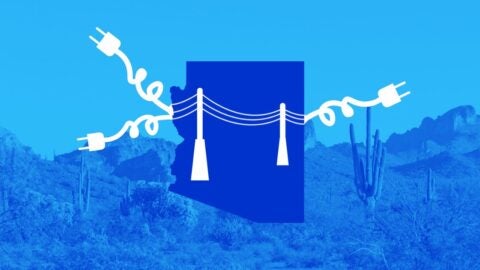Helping Plants and Animals Survive Climate Change
 This post is by Lisa Moore, Ph.D., a scientist in the Climate and Air program at Environmental Defense Fund.
This post is by Lisa Moore, Ph.D., a scientist in the Climate and Air program at Environmental Defense Fund.
What does wildlife conservation mean to you? Setting aside land? Restoring habitat? Reducing local stresses to species or ecosystems? These are the conventional methods. But because of rapid climate change, scientists in a recent paper say this may not be enough:
[T]he future for many species and ecosystems is so bleak that assisted colonization might be their best chance.
Assisted colonization – moving species to sites where they aren’t native – is a high-risk suggestion. There are many cases, for example, where introduced species have become invasive and wreaked havoc on native ecosystems. So why would some of the world’s leading biologists make such a suggestion?
Moving Targets
Well, they’re not recommending wholesale resettlement of Earth’s species. They say that moving a species should be an option of last resort. As a first line of attack, traditional conservation efforts should be continued and improved. Also, land managers should improve wildlife corridors to facilitate unassisted colonization – plants and animals moving on their own to more favorable locales.
Long-term records show that plants and animals are already moving on their own to keep up with temperature changes, generally toward the poles or up in elevation. (In some cases, this can lead to some nasty surprises – for example, disease-carrying mosquitoes moving into areas they didn’t previously inhabit.)
But unfortunately, many plants and animals can’t move fast enough to survive. Routes to new habitat may be cut off by development, or they simply may have nowhere to go. A species living on a mountain, for example, only can move up so far before reaching the top.
It’s in these situations that the scientists say assisted colonization should be considered. Here are their suggested criteria for identifying candidate species:
- High risk of decline or extinction due to climate change
- Move to new habitat is technically feasible
- Species cannot move to new habitats on their own
- Conservation benefits of moving outweigh potential costs
In some cases, there will be nowhere a species can go to survive. Then, the scientists say, storing frozen eggs, sperm, or seeds until suitable habitat can be found may be the only way to prevent extinction.
The fact that such a drastic recommendation is coming from leading biologists underscores the level of scientific concern about extinctions due to global warming. On the plus side, they think it’s possible to move some species safely. At the very least, they’ve opened the door for an interesting discussion.













One Comment
thanks, Lisa!
The fact that such a drastic recommendation is coming from leading biologists underscores the level of scientific concern about extinctions due to global warming.